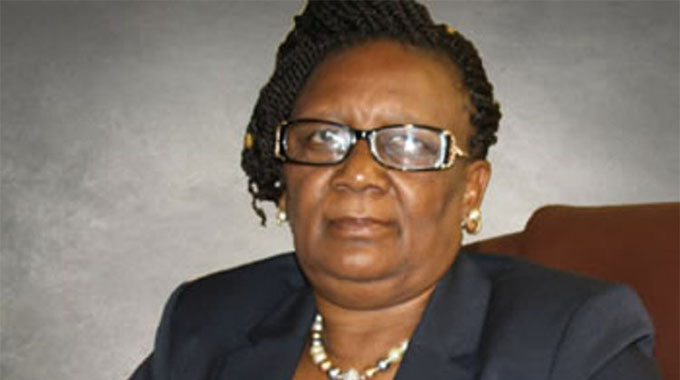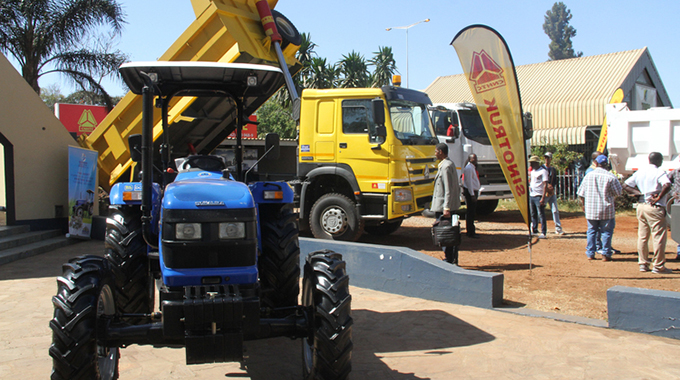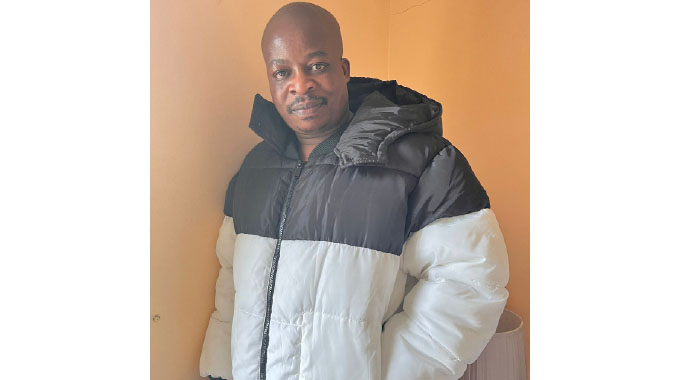THEN, CHARLIE MET THE ANGELS AND WAS TOLD HE STILL HAD UNFINISHED BUSINESS
Sharuko on Saturday
LAST week I made my debut on the Marawa Sports Worldwide daily radio show, on SABC’s Metro FM and Radio 2000, talking about the politics devouring Zimbabwean football.
For more than half-an-hour I answered questions fielded by Lelo, who was the host that evening, about the turmoil triggered by another explosion of boardroom bedlam in domestic football.
I had expected to chat with Robert Marawa, the regular host of the show, and also get time to discuss Aluvha’s Cape to Cairo expedition — which we both supported — and catch up on our AFCON adventure.
Little did I know Robert was in the intensive care unit of a Johannesburg hospital after suffering a third heart attack in the past decade.
Then, a day after the show, I saw the video he posted on social media telling the world he had, for the third time, suffered a heart attack and lived to tell the story.
“I think everybody knows about my two heart attacks that I’ve had. I’ve had to be admitted and I’ve had to have that checked on a regular basis. And the same thing happened last week,” Marawa said on Twitter.
“I literally drove myself from home after not feeling well and I said ‘let me go and admit myself’ because there was a pain that was not making any sense. And within a couple of hours, I was in ICU and that’s where I’ve been for the past six or seven days.
“I’m in recovery ward now after having had the most unbelievable couple of days. When I say unbelievable, I say it because it is on the brink of life and not living. That’s what it is, ICU is no playground but the general staff . . . has been outstanding.
“They’re still trying to figure out if there’s been a blood clot, which is the reason why they have prolonged my stay here at the hospital.”
His hair and beard looked dishevelled, for a man known for his attention to his image, but — after what he had gone through — that was the least of my concerns.
What mattered was that Robert was alive, as remarkable and incredible as it sounds given the gravity of the situation he faced, and we could again hear his voice and see his face.
And, this week, he sent me a text.
“As you know it’s a slow process but happy with the pace and how it’s being handled by the doctors. Thank you for reaching out . . . really means a lot.’’
He has become a symbol of defiance, to a deadly seizure that has claimed millions of lives around the world, and to survive not once, but three times is as remarkable as it can get.
I have grown close to Robert since an article I penned about him last year ended up on his desk and Aluvha’s jungle trip also bound us together as we narrated his tale.
Where others see this dominant figure who infuriate them, in an industry full of jealousy characters who are always ready to try and ambush and bring you down, I see a hardworking fellow who has earned his stars and stripes.
A model broadcaster, who has pushed himself to the limits to become the smooth operator that he is today, respected by many, loved by millions and an example for those who are the future of this industry.
There is never a boring Robert Marawa show — be it football, rugby, telling the world about the story of that incredibly young South African golfer or defiantly fighting in the corner of Caster Semenya.
And, of course, it comes with the full package of some music because sport, without the accompanying sounds from the terraces, loses a big part of what makes it such a very powerful attraction.
But, Robert is also human — just like all the sports personalities he chats to on his shows — and now and again he also has to deal with the same demons that confront every living person, like pain, being unwell, being sick, it’s all part of the adventure.
SURELY, THE GODS MUST BE CRAZY, WHAT WITH CNN ALSO HAVING THAT MAJOR SCARE
Tiger Woods can testify to that because, after an early part of his career in which he blitzed the world and changed golf with a dominance like had never been seen before in this game, the reality that comes with being a human finally caught up with him.
Now, the combination of surgeries and injuries have slowed down his charge to try and eclipse Jack Nicklaus’ record of 18 Major titles and while the magic remains there, as shown at the Masters this year, the blitzkrieg has stalled.
Muhammad Ali once floated like a butterfly and stung like a bee, but even he himself, the greatest of them all, had to confront the demons of being a human being at some point in his incredible journey.
It came in the form of Parkinson’s Syndrome, it slowed down his speech and his movement, but God kept walking with him.
And, the greatest specimen of a human being ever to enter a boxing ring, was still a loved and celebrated global sports icon by the time he died at the age of 74.
Robert Marawa is both the face and voice of South African football on radio and television, just the same way our very Charles “CNN’’ Mabika is also the face and voice of Zimbabwean football, on our local radio and television sets.
Somehow, just a few weeks before Robert checked himself into that ICU, where he continues to undergo specialist treatment in his recovery process, Charlie spent two weeks detained at Parirenyatwa Hospital after undergoing emergency surgery.
After having felt what he thought was just routine abdominal pain, one evening at home, Charlie was shocked by how things quickly deteriorated and, he told me, everything went blank and that’s the last he remembered.
Well, the brutal reality is that he had collapsed and, just as well, it happened at home with his family rushing him to a doctor who, after examination, ordered he undergoes emergency surgery.
By the time he woke up, he was in a hospital bed, in a private ward at Parirenyatwa Hospital, feeling very weak.
Unknown to him, and a Zimbabwean football community that has been his extended family since his cracking voice started booming on our radio stations more than 30 years ago, he had undergone emergency life-saving surgery.
The fellow with the distinct Afro hair, the one who refused to abandon a hairstyle from the Swinging Sixties, the guy with that intoxicating smile, the chap who never seems to age, the man whose life has played out in the public domain, the Charlie who never seemed to fall sick.
Without any hint of sickness, without any sign of discomfort, he was suddenly dragged to the gates of heaven, in his state of unconsciousness, before winning a reprieve from the Lord to spend more time with a domestic football constituency that has grown to take him as one of its own.
A reprieve to possibly ensure he would witness his beloved Warriors return to the light, which the World Cup qualifiers represent, after the darkness inflicted by their expulsion from these qualifiers, four years ago, in what was one of the team’s lowest points.
A reprieve to live longer, possibly, to one day watch his beloved Warriors find a way to move beyond the mediocrity of playing in the group stages of the AFCON finals and, like Madagascar this year, even become the toast of the tournament by going as far as the quarter-finals.
Or, like Robert’s Bafana Bafana and Kalusha’s Chipolopolo before them, even win the tourney.
A reprieve to live longer, possibly, to one day realise his long-cherished dream, to be ZIFA president, which he has nursed for years, but has been forced to shelve — despite tremendous support from millions of Zimbabweans who believe he is the perfect candidate — because of the politics associated with the race for that job.
A reprieve to live longer, possibly, to continue providing the link between the past, as represented in the ‘80s, and the present, so that he can argue in the corner of such people like Moses Chunga, whose legacy in the game is now being haunted by some wannabe self-styled technocrats with no respect for the history of our national sport.
To remind these horrible people, who have hijacked our national sport, that long before they left primary school, football was being played in this country and the artists from that era, especially those who were handed the responsibility to captain the Warriors, deserve respect because they served their country with distinction.
To use his powerful voice to fight this capture of our football by some people who are afraid of its past, and all the heroes of that era, and who have been pursuing a relentless battle to try and erase such history.
Including pretending not to know what Chunga represents in this sport — as they abuse their office positions to fight petty battles and create an industry where their little shadows will be all that matters.
These midgets who suddenly think they are now giants in this game, simply because they are working in an influential office in the administration of the game, who are haunted by the mere mention of a name like Moses Chunga, a name like Ephraim Chawanda, a name like Victor Mapanda and a name like Charles Mabika.
Thank God, Charlie lives, just as Robert Marawa lives, because these are the real giants in a game that is being abused by some pathetic individuals who think everything should start, and end, with them, simply because they happen to occupy a certain position in the sport’s administration.
Robert has to continue to fight in the corner of such people like Lucas Radebe, so that he is accorded the same special status in South Africa which he continues to get in Leeds, where newly-born kids are still being given his first name 14 years after he left the club.
And Charlie has to continue to fight in the corner of such people like Moses Chunga, so that he is accorded the same special status here in Zimbabwe like he continues to get in the Belgian city of Aalst, where they still roll out the red carpet for him more than 25 years after he left the club.
WHY IS IT THAT WE SIMPLY CAN’T APPRECIATE OUR HEROES THE WAY OTHERS DO?
Robert Marawa, just like Lucas Radebe, and Charles Mabika, just like Moses Chunga, are our football heroes either side of the Limpopo, no matter how much some might try to deny them their heroism.
This week on Twitter, we saw some people again question whether the late Adam Ndlovu really had trials at Manchester United, either because they doubt his pedigree or never believe one of us could scale such heights.
They jumped into attack, asking for photos to confirm that because, in their world, United are a different world where mortals like Adam never paraded their skills. I was forced to post this report from The Independent newspaper of the UK, on December 1, 1992, under the headline “United spurn Keegan’s pursuit of Hughes”, confirming that, indeed, Adamski had an extended run of trials at United, after Sir Alex Ferguson invited him there:
“Meanwhile, both Leeds and Coventry yesterday played down reports that Wilkinson had agreed a seven-figure deal for Peter Ndlovu, the Sky Blues’ 19-year-old Zimbabwean striker,’’ The Independent reported.
“Coincidentally, Ndlovu’s older brother, Adam, has been on trial at Old Trafford.’’
Still, that didn’t satisfy those doubting brigade, not because they didn’t trust what they were reading, but simply because they didn’t believe it could be true.
The same brigade who can spend weeks listening to mediocre European anchors on television football programmes, simply because they are from Europe, and have no time for Charlie and Robert, simply because they are local.
The same brigade who have no problem with Erol Akbay coaching without a CAF A Licence, simply because he is a Dutchman, but have no problem with Moses Chunga being denied to earn a living, coaching in the domestic Premiership, because he doesn’t have a similar qualification, because he is Zimbabwean.
I watched the final edition of the mini-series Chernobyl this week and, its parting words, from Russian nuclear scientist Valery Legasov, were defining and I have just adapted part of his farewell speech, changing from a scientist to a journalist, to explain why our pursuit of justice for Chunga this week hasn’t made some people happy.
“Some say to be a journalist is to be naive. We are so focused on our search for truth we fail to consider how few actually want us to find it. But it is always there whether we see it or not, whether we choose to or not.
“The truth doesn’t care about our needs or wants — it doesn’t care about our associations, our ideologies, our religions — it will lie in wait all the time.
“This, at last, is the gift of journalism. Where I once would fear the cost of truth, now I only ask what is the cost of lies.”
Thank God, my heroes Robert Marawa and Charles Mabika still live to be part of the journey.
To God Be The Glory!
Peace to the GEPA Chief, the Big Fish, George Norton and all the Chakariboys in the struggle.
Come on United!!!!!!!!!!!!!!!!!!!!!!!!!
Ole, Ole, Ole, Ole, Ole, Ole, Ole Ole!
Text Feedback – 0772545199
WhatsApp – 0772545199
Email – [email protected] [email protected] You can also interact with me on Twitter – @Chakariboy, Facebook, Instagram – sharukor and interact with me every Wednesday night, at 9.45pm, when I join the legendary Charles “CNN’’ Mabika and producer Craig “Master Craig’’ Katsande on the television magazine programme, “Game Plan”











Comments